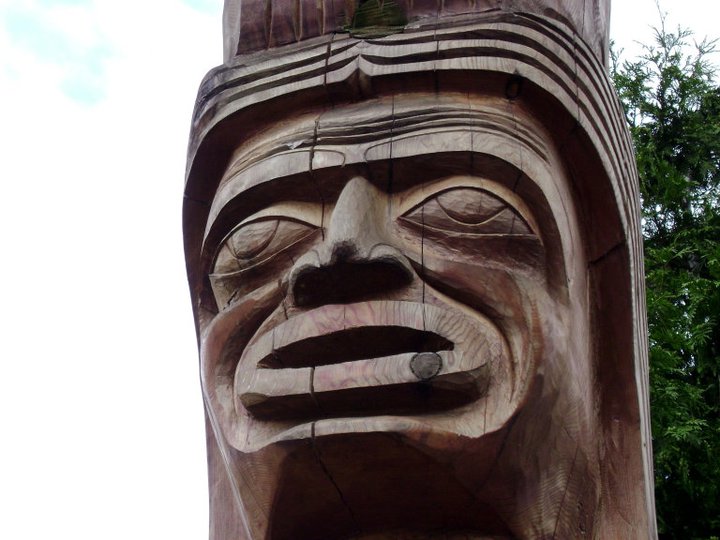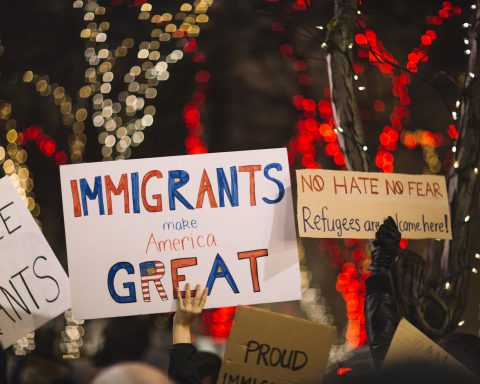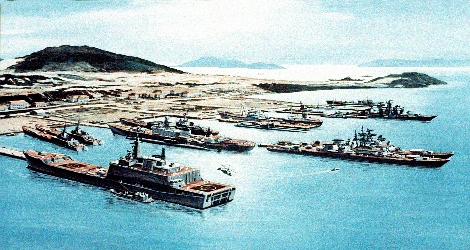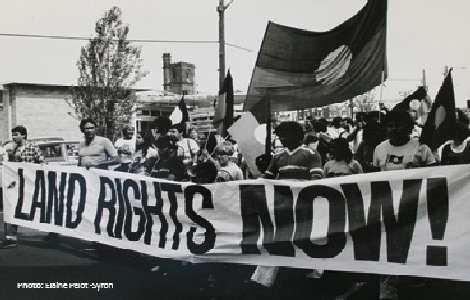Lessons Learned from the Sliammon Nation
November 25, 2011 by Zoe Bernatsky PDF Version (Optimal for Printing)
PDF Version (Optimal for Printing)

On October 12, 2011, the British Columbia Treaty Commission issued a statement that was exceedingly disturbing in its failure to appreciate the complexities of justice in any treaty negotiations with First Nations in British Columbia. The Chief Commissioner, Sophie Pierre, stated that, while there have been some hopeful signs, all parties must take responsibility for their lack of urgency in negotiating: “No one should be satisfied with the progress being made in treaty negotiations in British Columbia.”[1] While the limited number of full treaty ratifications is indeed a sobering thought, this news release is likely to cause unwarranted frustration for those Canadians who are unaware of the complexity of the First Nations land claims in British Columbia (BC).
If that happens, we may see a reprise of the 1970s and 1980s, when First Nations people resorted to direct action, eliciting anger from many Canadians, while causing delays in resource development projects and disrupting economic activity, in order to heighten concern for past injustices. At that time injustices were not acknowledged by the BC government, and appropriate processes to restore land titles and self-governance were blocked. First Nations people collectively stood up for their rights against the government. Since most provinces had already signed treaties with First Nations groups, many Canadians were unaware of the particularities of the BC situation, which involved the earlier appropriation of land without reimbursement.
___________________________________________
What many then failed to grasp—and still fail to grasp—is that land treaties are not an act of charity on behalf of the Canadian government, but an act of justice in reparation for the historical practice of land confiscation without due process.
___________________________________________
What many then failed to grasp—and still fail to grasp—is that land treaties are not an act of charity on behalf of the Canadian government, but an act of justice in reparation for the historical practice of land confiscation without due process. The negotiation of land treaties and the development of processes for self-government will assist the First Nations in achieving their right to the land and to enter into economic endeavors through free exchange in the marketplace, a right for which other citizens have not had to fight in recent historical memory. This process is not an easy one, but it is a process demanded by justice.
How We Got Here
A short review of Canadian history is required to understand the background of these long overdue negotiations. When Europeans first began to settle in North America, Britain recognized Aboriginal land title. The Royal Proclamation of 1763 stated that only the British Crown could acquire land from the Aboriginal people through treaty. This is indeed what occurred in most of Canada before Confederation. The new Dominion of Canada continued this process before the west was opened for settlement, but in British Columbia, this process was never completed. When BC joined the Confederation in 1871, only 14 treaties on Vancouver Island had been signed and land title to the rest of the province was unresolved. Not until 1970 was a process developed for Aboriginal people of BC to pursue their rights to land.
In fact, most BC First Nations had to wait until 1993 to work towards recognition of their rights.[2] In landmark judgments such as the Delgamuukw case, the Supreme Court of Canada clarified that Aboriginal title is the right to the land itself, not just the right to hunt, fish, or gather; and that aboriginal title was never extinguished in BC, even though the land has been regarded as Crown land, owned by the federal or provincial government.[3] At present, until treaties are established, the government must consult with First Nations people whose rights are affected by land development, and hence there have been many delays in development, delays that have angered many citizens, unaware of the underlying issues of Aboriginal justice.






Unbound Social